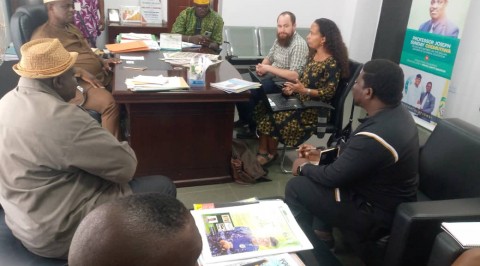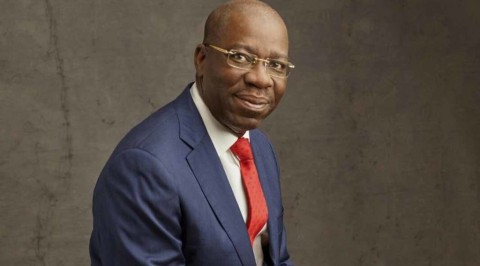Lagos State Government Target 15,000MW Electricity by 2020
The Lagos State Government has announced its hopes to raise the daily electricity supply in the state from the current 1,000MW to 15,000MW by 2020.
Addressing journalists at the inauguration for the seventh Lagos Economic Summit tagged: "Ehingbeti 2014," the Commissioner for Economic Planning and Budget, Mr. Ben Akabueze, said the projection was premised on anticipated significant investment it hoped to attract into the power sector of the state economy as one of the objectives, which this year’s summit was set to achieve.
‘‘We project that by 2020, the minimum in terms of our power requirement will be 15,000MW, which means over the next six years, we expect about 50 per cent growth in the base demand that we see today. Is it possible for supply to match that demand? Absolutely, in six years it is possible if there is sufficient investment to go from 1,000MW to 15,000MW,’’he said.
According to him, although the summit, which will hold from April 8 to 10 under the theme, ‘‘Powering the Lagos Economy: Real Opportunities, Endless Possibilities,’’ would focus on power, three other key sectors where stable power would impact significantly would also come under focus during the summit. These are agriculture, transportation and housing.
Akabueze disclosed that a major focus of the summit is sucessfully attracting investment into the power sector; this he said is in line with the global acknowledgement of efficient and reliable power system as the bedrock for economic growth anywhere in the world.
He bemoaned the inadequate power infrastructure, linking it to the slow growth and development of the Nigerian economy. He stressed that the current supply of electricity to the state from the national grid was inadequate for a mega city like Lagos.
Aside, he regretted that Nigeria was still struggling with how to overcome its power challenge at this time while many countries in her class including South Africa, which is just one-thirds of the size of the population of the state, were already celebrating milestones in the production of electric power far in excess of the demand of their citizens whether for commercial, industrial or domestic uses.
The commissioner who doubles as the co-Chairman, Lagos Economic Summit Group, however said the state government was also exploring the summit to market the inherent opportunities offered by the power deficit to perceptive investors. He added that the state has also, within the provisions of the federal government’s Electric Power Sector Reforms, developed a number of power initiatives including three completed independent power plants and two ongoing projects.
On the implementation of the 150 resolutions reached at the six previous summits, Akabueze revealed that 144 of them had been implemented by the state government, five were still undergoing implementation, while one was considered to be unrealistic. ‘‘Ehingbeti is not just a talk-shop, it is a platform for generating ideas and taking decisions,’’he affirmed.
The Commissioner for Housing, Mr. Bode Jeje, stated that efficient power system was relevant to the delivery of affordable houses because it would help to bring down the cost of construction as well as promote cleaner environment through the elimination of generating sets as an alternative source of power.
He said these two factors were of interest to the state government because the reduction of carbon footprint was another way to promote a healthy lifestyle, while the availability of power would help to mechanise the process of construction as a result of the use of most modern construction technology.
Also speaking on the power imperative for the transport sector, the Commissioner for Transportation, Mr. Kayode Opeifa, said efficient power was required to drive the various aspects of the sector and more importantly to achieve an integrated, inter-modal public transportation required by a mega city like Lagos.
sharing his own take on the issue, the Commissioner for Agriculture and Cooperatives, Prince Gbolahan Lawal, said that stable power was a critical input for agricultural development especially in Nigeria and Africa, saying the four major areas of value chain to which power was crucial for the state included aquaculture, poultry, vegetable and rice production.
He added that based on the projection by the Food and Agriculture Organisation (FAO) that the world population was likely to increase to nine billion from the current seven billion in another few years, and the warning on the effect of climate change on food production, he said it was imperative for the state government to be innovative in meeting the food needs of its growing population estimated at 21 million.





